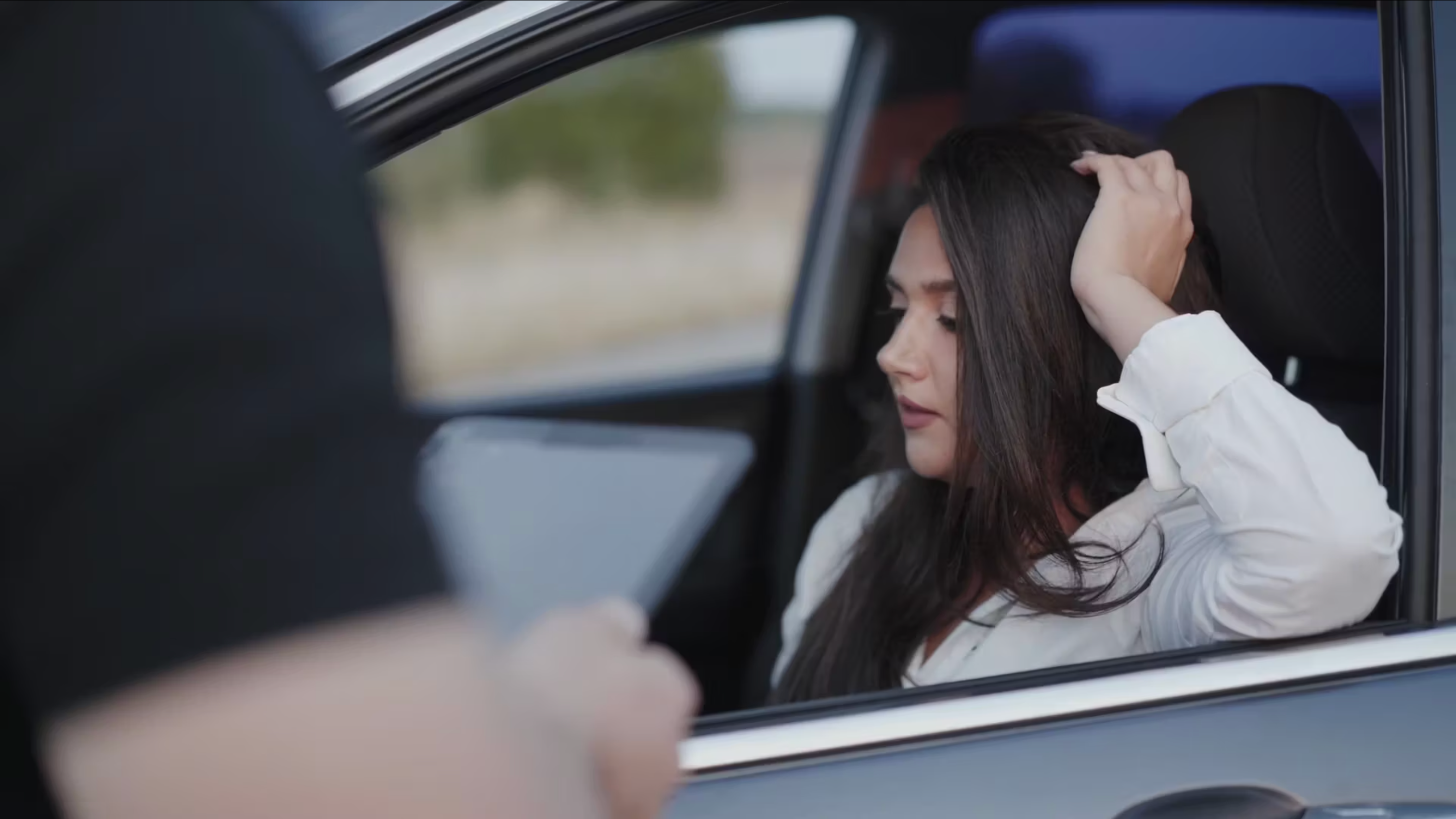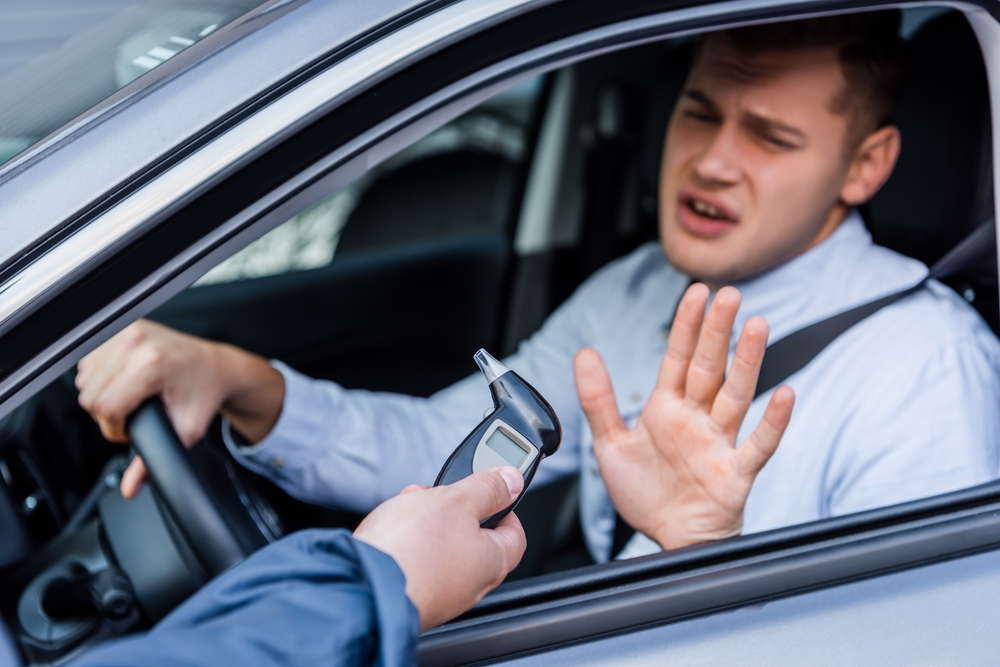
Breath Test Refusal Defense Attorney in Kingston, PA, Represents Clients Who Refuse to Take a Breathalyzer Test in Luzerne County, Lackawanna County, Columbia County, and Throughout Northeastern Pennsylvania
When pulled over for suspected drunk driving, you might refuse a breathalyzer test or other tests that measure the rate of alcohol concentration in your body, thinking that doing so is in your interest. Unfortunately, under Pennsylvania law, refusal to submit for an alcohol breathalyzer can expose you to serious consequences. If you have refused to take a breathalyzer test or are considering doing so now, you should contact a knowledgeable Luzerne County breathalyzer refusal lawyer as soon as possible.
At Muckler Law, LLC, we know a breath test refusal in PA requires immediate attention. Our firm offers 24/7 availability, including nights, weekends, and holidays, so you can count on us for legal assistance when you need it most. Contact us today for a free, confidential consultation.
Breathalyzer Refusal Charges in Luzerne County, PA
Refusal to take a breath test when stopped for suspected DUI in Pennsylvania doesn’t protect you from legal consequences. Pennsylvania statute 75 Pa.C.S. Section 3803 establishes refusing a breathalyzer as a violation that constitutes an ungraded misdemeanor if you have no prior DUI offenses. However, if you have one prior DUI in the past 10 years, the charge is upgraded to a more serious first-degree misdemeanor.
For offenders with a more extensive record of prior DUIs, refusing testing when suspected of driving under the influence constitutes a felony. With two prior DUI offenses, you can be charged with a third-degree felony. Refusal of a breathalyzer test with three or more prior DUI offenses can constitute a second-degree felony charge. You will also be subject to civil penalties for refusing to take a breathalyzer test.
Before you decide to refuse to take a breath test, you should speak to a Pennsylvania DUI lawyer. Your attorney can assess the specific facts of your situation and provide professional guidance as it pertains to your unique circumstances.
What if you have already refused to take a breathalyzer test without an attorney’s input? It’s still wise to turn to a knowledgeable Luzerne County breathalyzer refusal lawyer now for legal advice you can trust and help to navigate the criminal proceedings ahead of you. Your attorney can help you understand the case against you, how the laws apply to your situation, and what consequences you’re facing. Through a thorough investigation and thoughtfully exploring all avenues of legal defense, your lawyer can put together a strategy for defending you against these charges and pursuing a more favorable outcome.
Areas Our Luzerne County Breathalyzer Refusal Lawyer Serves
If you’re facing refusal to take a breath test charges in Northeastern Pennsylvania, Muckler Law, LLC, is the criminal defense firm you should turn to.
We represent defendants in refusing breathalyzer test cases all over Luzerne County, including:
- Wilkes-Barre
- Hazleton
- Nanticoke
- Pittston
- Kingston
- Plymouth
- Wyoming
- Foster Township
- Bear Creek Village
- Huntingdon Township
- Plains Township
- Hanover Township
With founder and lead attorney Matthew T. Muckler’s experience serving as former Luzerne County Assistant District Attorney, our firm has valuable insider experience to draw on when defending against refusal of breath test DUI charges.
Breathalyzer Tests and Alcohol Concentration Levels in Pennsylvania

In a breathalyzer test, you breathe into a device used to measure the alcohol content in your breath. Pennsylvania law (under statute 75 Pa.C.S. Section 3802) allows for either breath alcohol or blood alcohol rates to be considered in DUI offenses.
While rates between 0.08% and 0.099% constitute general impairment, a rate between 0.10% and 0.159% constitutes a high rate of alcohol under PA law. Levels of 0.16% or above fit into the highest rate of alcohol recognized by the state. In most circumstances, which tier of alcohol concentration you fall into affects the severity of your sentence if convicted of a DUI (with some exceptions, such as situations involving DUI accidents).
Separate alcohol concentration thresholds apply to minors (0.02%) and drivers of commercial vehicles (0.04%) or school vehicles (0.02%).
It’s important to know that Pennsylvania law allows for DUI charges even without confirmation that a driver’s alcohol concentration exceeds this threshold under statute 3802(a)(1). Being “rendered incapable of safely driving, operating or being in actual physical control of the movement of the vehicle” due to alcohol or drug use can constitute general impairment, even if a driver’s blood or breath alcohol concentration is below 0.08% or is not known.
Perhaps most importantly, the problem with refusing a breathalyzer test isn’t just that doing so won’t necessarily prevent you from being charged with a DUI. If the prosecution is able to gather enough other evidence to bring charges against you without breath test results, your refusal to take a breathalyzer test could actually put you in a worse situation.
Under statute 75 Pa.C.S. Section 3804(c), refusing a breath test or blood test when accused of driving under the influence means you will face the same penalties as drivers determined to have the highest tier of alcohol concentration. This means that, if convicted, you will face more serious penalties than if you had consented to the breath test and been found to have a breath alcohol concentration of 0.159%. The consequences of a conviction if your alcohol concentration level was 0.16% or higher are the same as they would have been if you had taken the breath test.
Can You Refuse a Breathalyzer in Pennsylvania?
In a literal sense, you can refuse to take a breathalyzer test under PA law. The same statute (75 Pa.C.S. Section 1547) that establishes the state’s use of chemical testing to determine an offender’s amount of alcohol or controlled substance in suspected DUI matters also states that, in the event of a refusal to submit to a test, “the testing shall not be conducted.” Per this statute, law enforcement can’t forcibly make you take a breathalyzer test if you refuse to do so.
However, refusing to take a breathalyzer is itself an offense that violates Pennsylvania law. If you refuse to take a breathalyzer test, you are violating Pennsylvania’s implied consent law. You need a breath test refusal defense attorney in Kingston, PA, to help you handle the complex legal matter ahead of you.
What Happens If You Refuse to Take a Breathalyzer/Blood Test?
You can face civil penalties for refusing to take a breath test, as well as criminal penalties if convicted of a DUI offense.
Civil Penalties for Refusing the Breathalyzer Test
A refusal to take a breathalyzer test automatically allows for certain civil penalties against you, even if you never get convicted of a DUI.
For a breath test refusal in a suspected DUI, you will have your driving privileges suspended for 12 months or, if you have a prior history of DUI or breath test refusal, 18 months. Although it may be possible to appeal this suspension, getting your license back generally means paying restoration fees of up to $2,000.
Criminal Sentences for DUI and Refusing a Breathalyzer
Civil penalties, like license suspension, occur automatically when you refuse a breathalyzer test. However, if the case against you goes to trial and you are convicted of a DUI—which can happen even without a breathalyzer test as evidence—you will face very serious criminal penalties, as well. That’s because refusing a breathalyzer puts you in the highest tier of DUI offenders.
For a first offense of a DUI with a refusal to take a breathalyzer, a conviction will result in a prison term between 72 consecutive hours and six months. You will also be fined an amount in the range of $1,000 to $5,000, have to go to an approved alcohol highway safety school, and need to comply with any drug and alcohol treatment requirements imposed on you.
A second DUI offense in which you refused a breathalyzer test could send you to prison for a minimum of 90 days and a maximum of five years. You’re also facing fines that can range from $1,500 to $10,000. You could also have to attend an alcohol highway safety school and get required drug and alcohol treatment.
Third DUI offenses and all subsequent offenses, when you have declined a breathalyzer test, can result in a prison term of at least one year and potentially up to five years. Fines between $2,500 and $10,000 apply, as do requirements to comply with any drug and alcohol treatment ordered.
How Can a Luzerne County Breathalyzer Refusal Lawyer Help Me After Declining a Breath Test?
You may have thought you had good reasons to refuse a breathalyzer test, but you still need professional legal assistance to defend against the serious consequences you could be facing. A breath test refusal defense attorney in Kingston, PA, can identify any mitigating factors or evidence in your favor and determine if law enforcement failed to follow proper procedures in your case. Based on the unique facts of your situation, we can develop the most robust possible defense strategy for you.
Contact a Luzerne County Breathalyzer Refusal Lawyer at Muckler Law, LLC, Today for a Free Consultation
The potential consequences of refusing a breath test when suspected of DUI in Pennsylvania are serious. With a strong legal defense strategy, you may be able to pursue a more favorable resolution to your case, such as getting charges dropped, a not-guilty trial verdict returned, or lighter sentences imposed.
For help from a breath test refusal attorney in Kingston, PA, contact Muckler Law, LLC, online or call 570-908-4069 today.


